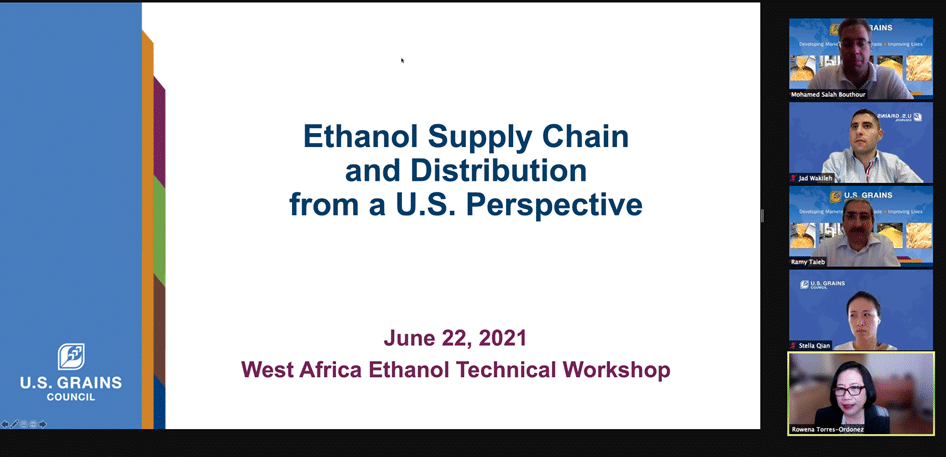The U.S. Grains Council (USGC) conducted a forum with key industry importers and stakeholders from West Africa last month, with a high concentration of participants from Nigeria and Ghana.
The virtual workshop, held on June 22, 2021, addressed the ethanol supply chain and its distribution from a U.S. perspective and discussed the substantial benefits in emissions reduction of ethanol-blended fuels.
Speakers, including Ramy H. Taieb, USGC regional director for the Middle East and Africa, discussed technical issues including vehicle compatibility, infrastructure and blending needs.
“West Africa is a region with a growing gasoline market and E10 is a starting point for existing policies in Nigeria and Ghana,” said Taieb. “This workshop is part of the Council’s technical workshop webinar series to sustain and engage efforts in order to support increased global use of ethanol in the region.”
The Middle East, Africa and Europe accounted for 14 percent of U.S. ethanol exports in the first nine months of the 2020/2021 marketing year, totaling 149 million gallons (52.8 million in corn bushel equivalent). Imported ethanol was used for both fuel and industrial purposes. Top markets included 35 million gallons (12.4 million in corn bushel equivalent) to the Netherlands, 30 million gallons to Nigeria (10.6 million in corn bushel equivalent), 11 million gallons (3.9 million in corn bushel equivalent) to the United Kingdom and 25 million gallons (8.9 million in corn bushel equivalent) to the Arabian Peninsula (mainly from Saudi Arabia and Turkey).
The Council’s regional office in Tunis, Tunisia actively operates programs on developing or expanding ethanol use in many markets, including the European Union. These efforts focus on increasing the value of ethanol in the region, especially as individual countries work to meet commitments to reduce greenhouse gas (GHG) emissions under the Paris Agreement.
Ethanol provides a pathway by reducing the carbon intensity of transportation fuels. According to the U.S. Department of Agriculture (USDA), corn ethanol will reduce GHG emissions by 50 percent by 2022 compared to conventional gasoline.
Following this workshop, the Council plans to continue offering regional workshops to address technical needs and foster partnership building.
Learn more about the Council’s work to promote the increased global use of ethanol.
About The U.S. Grains Council
The U.S. Grains Council develops export markets for U.S. barley, corn, sorghum and related products including distiller’s dried grains with solubles (DDGS) and ethanol. With full-time presence in 28 locations, the Council operates programs in more than 50 countries and the European Union. The Council believes exports are vital to global economic development and to U.S. agriculture’s profitability. Detailed information about the Council and its programs is online at www.grains.org.

